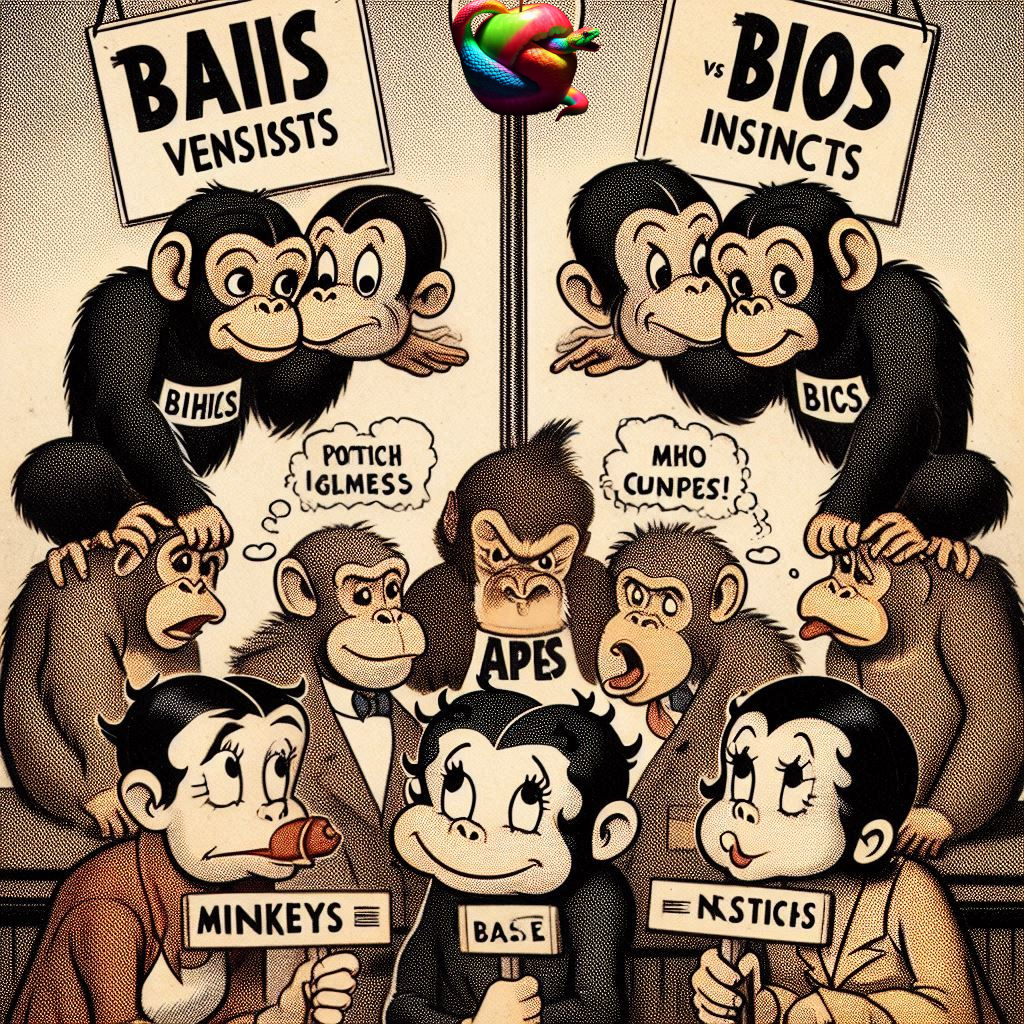Reaction: Derya Sakin (Hanoğlu)'s thesis : The Ascent of Morality, from Non-Human to Human Animals: An Emotion-Based Account
A list of reaction to other evolution~morality papers and chapters and stuff can be found at Reactions to papers on evolution~morality.
Derya Sakin Hanoğlu The Ascent of Morality, from Non-Human to Human Animals: An Emotion-Based Account. Middle East Technical University, 2021. via academia.edu. Web.
My reaction to her article “On the Evolutionary Origin of Morality”can be found here or on substack. This reaction to her doctoral thesis will probably just cover the abstract of the thesis because time. (There are brambles to weed today). Also do not have time to learn Turkish… (it's a dual language thesis). but we will see how we go. Given the effort put into theses occasionally we should put the effort into reading them.
I get most of these texts by way of suggestions from academia.edu algorithms. If one pays them a subscription one of the bits of added-value is access to AI summaries of the texts. Generally I have not used them. Recently I used another newish AI LLM platform to feed in my own writing, in order to summarise my own why we should websites and some essays, and the summary came back like it was written by someone who badly read some students notes a decade ago plus maybe something in a Reader’s Digest on the life of Albert Schweitzer. I am not sure if this reflects on my inability to express my thoughts and so it gets dumbed down by AI into what it stochastically expects me to say given the vocabulary I use, or AI is just shit at dealing with actual novelty.
So seeing that with my own work I tend not to trust the generated summaries for my own critiques. Of course I will do my own weird interpretations, but at least they are not algorithmically driven errors, they reflect the structure and experience of my 60 yo brain.
Those weirdness is what these reactions are about.

Abstract
The aim of this thesis is to investigate whether morality is uniquely human, and to argue that emotions are the basis of morality in the sense that moral behavior is produced by emotions. In order to support my suggestion, I first intend to investigate the nature and function of emotions. Furthermore, I adopt an evolutionary perspective suggesting that our biology pushed us toward caring about certain things surrounding us. In accordance with this assertion, I endeavor to examine whether moral judgments and moral beliefs can be illustrated in a non-cognitivist way from the perspectives of both naturalist philosophers and evolutionary scientists. Accordingly, I defend the view that moral judgment is a non-propositional, psychological attitude. From a contemporary perspective, we might argue that Hume‘s interpretation of moral judgment adopts a noncognitivist and non-propositional attitude. Moreover, moral judgment does not express a proposition that describes facts and is truth evaluable; rather, it expresses feelings. In this sense, moral judgment is a psychological inclination to feeling a specific emotion and, accordingly, the particular emotion comprises approval or disapproval in terms of moral judgment
Finally, since moral judgment is considered to be the most significant element of being a moral agent and if I can explain moral judgment in precisely the way I describe above, then it will open the room for morality among animals. In other words, my position that moral judgment is non-propositional supports the idea that we may attribute morality to non-human animals. Keywords: Animal Morality, Evolutionary Ethics, Emotions, Nonanthropocentric ethic, Non-propositional judgments
Reaction
"Furthermore, I adopt an evolutionary perspective suggesting that our biology pushed us toward caring about certain things surrounding us."
I totally think this is the place to start.
"to argue that emotions are the basis of morality in the sense that moral behavior is produced by emotions. In order to support my suggestion, I first intend to investigate the nature and function of emotions. "
So the previous:
"to argue that emotions are the basis of morality in the sense that moral behavior is produced by emotions. In order to support my suggestion, I first intend to investigate the nature and function of emotions. "
Emotions might be a little late from my perspective, so yeah, but this place is no where as derivatively late as things like morality or religion.
"Moreover, moral judgment does not express a proposition that describes facts and is truth evaluable; rather, it expresses feelings. In this sense, moral judgment is a psychological inclination to feeling a specific emotion and, accordingly, the particular emotion comprises approval or disapproval in terms of moral judgment"
Totally. That's what we should.
Why we should explores the reasons and implication of that.
"my position that moral judgment is non-propositional supports the idea that we may attribute morality to non-human animals. "
Yep.
My only provisos of agreement here with Derya is that i see bias/urges/instinct/ as a more baseline underpinning of 'morality', so the emotions even as they reflect/express that engagement of where "our biology pushed us toward caring about certain things surrounding us" are derivative in that evolutionary process, (but no where near as derivative as the morality we feel should be there, say, deontologically, by way of karma or faith).
I.E we have to explain our feelings.
Yet again.
So, yes to using emotions to understanding morality as to why we should, as indeed what we should. But we need to understand biases even more in order to explain those emotional loadings and moralities vary through time and across geographies.
I'll have to map how I aproach biases next. Overcoming them is not enough.
